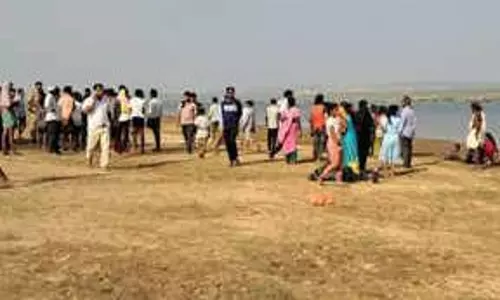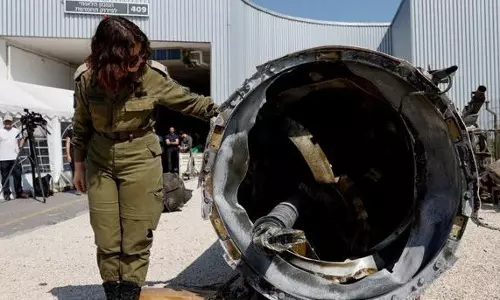
The Rohingya crisis
text_fieldsThe Rohingya refugees, coming up to around 13 lakhs in Myanmar, are the “most persecuted minorities in the world,” according to the UN.
The largely ignored plight of these hapless refugees has been in the headlines for a while now. The crisis has now further aggravated after some mass graves containing "hundreds of skeletons" were found in Padang Besar along the Thai border in the Malaysian state of Perlis. The statement from the Malaysian police said that 139 grave sites were found close to the 28 abandoned detention camps, used by the refugees and run by human traffickers who deported them to the neigbouring countries illegally. The graves are believed to be a part of human trafficking activities and the number of bodies in each grave is unknown. The Malaysian authorities, who initially denied the news, later confirmed it and the samples taken from the site were sent for test in order to find out the place of origin of the dead. But the domestic as well as the international human rights organizations and the media have already confirmed that the bodies were of the Rohingya refugees.
The Rohingyas, who are Muslims, have suffered discrimination for decades in the Buddhist-majority Myanmar and have been considered illegal settlers. They are often targeted by the Rakhine Buddhists and neglected by the rest of the international community with no access to adequate health care, proper living conditions, job opportunities or access to education. These minorities have been denied citizenship in Myanmar only because of the religion they follow. The Buddhist mob had unleashed a series of genocidal attacks against the Rohingyas with the support of the government in June 2012 in West Myanmar. Around 2 lakh people were deprived of their homes and had been residing along the banks of a river. The army blocks all the assistance to these refugees from outside including food, medicines and proper medical attention due to which hundreds die in these ‘concentration camps’. The graves were found near these camps. The helpless refugees hence flee to the neighbouring countries particularly Malaysia, that is 2000 miles away and fall victim to the human traffickers who dupe them into handing over money for ferrying them to a safer shore. Thousands are now stranded at sea with the traffickers abandoning their human cargo due to regional crackdown. Malaysia, Thailand and Indonesia initially refused to accept them but later bowed to the international pressure to accept the refugees temporarily.
There are still many left in the unhygienic camps. Several human trafficking gangs camp along the borders of Malaysia and Thailand to trap those refugees, who come fleeing persecution from Bangladesh and Myanmar. The traffickers have ferried around 3600 refugees in the last two weeks alone. The civil rights organisations in the region demanded an inquiry into the matter to reveal the truth behind the mishap citing the presence of human markets operating in the region and the existence of more similar cases. The silence of the authorities in the different neighbouring countries also encourages the traffickers. The international community hasn’t been able to find a solution to the matter so far. A permanent solution would come up and the matter solved only if the military government in Myanmar opens its doors to these helpless people.























